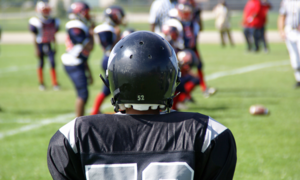164 Results
Teach This: Native American Appropriation at the Super Bowl

What Is Settler-Colonialism?

Teach Standing Rock With Purpose
Talking With Children About the Hard History of Slavery in the United States
The relaunch of the Teaching Hard History podcast series reminds us that discussing the history of slavery in the United States in age-appropriate ways can help young people understand how that history influences life today. Slavery is the institution that made racism a part of our nation’s foundation, and the legacy of slavery is present in many current systems that disproportionately affect Black children and families. If we are to build a more positive future together, learning this history is essential for healing and reconciliation.
- Teaching Hard History: Grades K-5
- Celebrating African and Indigenous Cultures
- Talking to Children About the History of Slavery in the United States
Nations Within
What We're Watching
Honest History Can Help Prepare Young People for Life’s Complexities
Learning the honest history of our nation helps us understand our diversity and strengthens us all as we work toward building on more solid national foundation of truth and justice. As we celebrate Native American Heritage Month, the Learning for Justice page offers resource to learn and teach about the diversity of Indigenous cultures and communities. To explore our historical complexity, the recent magazine article, “American Patriotic Songs: Context and Perspective,” helps us to confront the various perspectives that a single patriotic song can embody.
- American Patriotic Songs: Context and Perspective
- Celebrate Native American Heritage
- Celebrating African and Indigenous Cultures